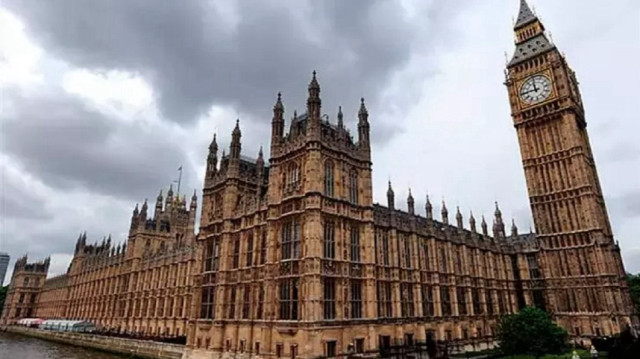

File photo
End of Life Bill, introduced by Labour backbencher Kim Leadbeater, offers terminally ill patients right to choose to end their lives under strict safeguards
British lawmakers have voted in favor of a bill to legalize assisted dying in England and Wales, marking a significant step forward on a deeply controversial issue.
The vote, held after five hours of impassioned debate in the House of Commons on Friday, saw 330 MPs support the bill, with 275 voting against it.
Although this vote represents a breakthrough for supporters of assisted dying, it is just the first stage in a lengthy legislative process.
The bill will now undergo months of detailed parliamentary scrutiny and must clear additional stages, including a final vote in the Commons and approval in the House of Lords, before it can become law.
The Terminally Ill Adults (End of Life) Bill, introduced by Labour backbencher Kim Leadbeater, offers terminally ill patients the right to choose to end their lives under strict safeguards.
If passed, the bill would represent a significant shift in the UK's approach to end-of-life care, where assisting someone to die remains illegal.
The bill outlines several stringent criteria to ensure the process is tightly regulated.
Applicants must be over 18, live in England or Wales, and have been registered with a general practitioner for at least 12 months.
They must have the mental capacity to make the decision and express a clear, settled, and informed wish without any coercion.
Eligibility is limited to those expected to die within six months.
Patients would need to make two declarations of their intent, signed and witnessed, and receive approval from two independent doctors.
A High Court judge would also need to authorize the request, with a 14-day waiting period before the patient could act.
The bill states that a doctor would prepare the substance for the patient, but the individual must self-administer it. Any coercion in this process would be met with a severe penalty of up to 14 years in prison.
- Divisive issue
This is the first time members of Parliament have debated the issue in nearly a decade.
In 2015, a similar proposal was overwhelmingly rejected by a vote of 330-118.
Friday's free vote allowed legislators to decide independently, without party instructions, but opinions remained divided.
Prime Minister Keir Starmer expressed support for changing the current law, while Health Secretary Wes Streeting opposed the bill, citing concerns over inadequate palliative care and potential National Health Service (NHS) budget pressures.
Critics warn that the law could lead to vulnerable people feeling pressured to end their lives, advocating for improvements in end-of-life care instead.
Leadbeater defended her proposal as necessary, arguing that even the best palliative care could not prevent some patients from enduring "horrible, harrowing deaths."
She emphasized that her bill incorporates the "strictest safeguards anywhere in the world."
The bill is focused on assisted dying, where terminally ill patients self-administer life-ending drugs prescribed by doctors.
It differs from assisted suicide, which includes helping non-terminal patients die, and euthanasia, where a doctor directly administers lethal drugs. Both remain prohibited under the proposed legislation.
If the bill passes today's vote, it will face further scrutiny in Parliament, a process that could take months before becoming law. Should it be rejected, the proposal will be shelved.
#England
#Wales
#parliament
